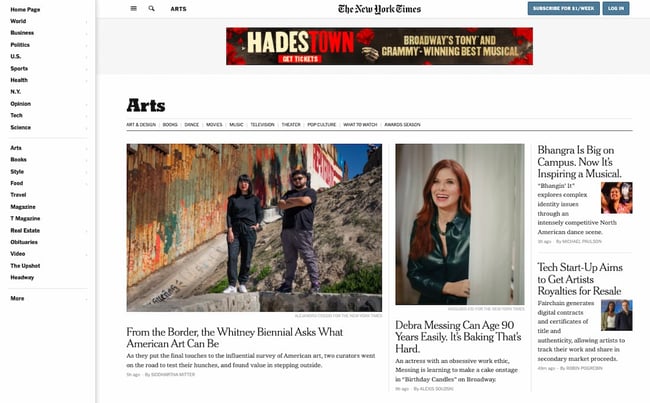Little Known Facts About News Websites.
Little Known Facts About News Websites.
Blog Article
News Websites Fundamentals Explained
Table of ContentsThe Ultimate Guide To News WebsitesGetting My News Websites To WorkSome Known Factual Statements About News Websites Little Known Questions About News Websites.The 9-Second Trick For News Websites
It was down in the UK and Brazil but up some various other nations, such as Greece, Bulgaria, and Poland (News Websites). This year, for the first time, we asked about the various manner ins which individuals stay clear of the information and located that around half of avoiders (53%) were attempting to do so in a broad-brush or periodic way as an example, by switching off the radio when the news began, or by scrolling past the information in social networksYou claimed that you attempt to proactively prevent news.

I'm most likely selecting to read even more light-hearted stories than I used to currently. M, 51, UK Turning my back on news is the only means I feel I can cope in some cases. I have to purposely make the initiative to turn away for the sake of my very own psychological wellness.
The Facts About News Websites Uncovered
Selective evasion of Ukraine news was highest possible in a number of the nations closest to the conflict, enhancing findings from our extra study in 2014, soon after the war had actually begun. Our data might not recommend an absence of interest in Ukraine from close-by nations but rather a wish to handle time or shield psychological health from the extremely genuine scaries of war.
Comparing Finland with a politically polarised country such as the USA (see following graph) that is less impacted by the battle, we locate a really different pattern of topic avoidance. In the United States, we discover that customers are most likely to avoid subjects such as national politics and social justice, where disputes over concerns such as sex, sexuality, and race have actually become very politicised.
American politics are quite hazardous nowadays. I discover occasionally that I need to separate from tales that simply make me mad. F, 61, USA For some individuals, bitter and disruptive political discussions are a factor to transform off see this page information completely, however, for some political upholders, evasion is usually concerning shutting out viewpoints you do not desire to listen to.

Get This Report about News Websites
Some are aiming to make information extra obtainable for hard-to-reach groups, widening the information agenda, appointing more motivating or favorable information, or accepting constructive or remedies journalism that provide individuals a sense of hope or individual agency. In our study this year, we asked respondents regarding their interest in these various approaches.
This clarifies why stories like Ukraine or nationwide politics perform well with news regulars yet can at the exact same time transform less interested individuals away (News Websites). Selective avoiders are less curious about all kinds of information than non-avoiders but in family member terms they do appear to be much more curious about positive or solutions-based information

The 6-Minute Rule for News Websites
2023). This may hold true in the minute, however in time it seems to be leaving lots of people vacant and less satisfied, which might be weakening our connection with and count on the information. Throughout markets, general trust This Site in information (40%) and count on the sources people utilize themselves (46%) are down by an even more 2 percentage factors this year.
Through the rear-view mirror, the COVID-19 trust fund bump is clearly noticeable in the adhering to chart, though the instructions of travel after that has been blended. In some situations (e.g. Finland), the count on rise has been kept, while in others the upturn looks more like a blip in a story of ongoing long-term decrease.
Some of the greatest reported levels of media objection are found in countries with highest levels of distrust, such as Greece, the Philippines, the USA, France, and the UK. The most affordable levels of media criticism are often in those with higher degrees of trust, such as Finland, Norway, Denmark, and Japan.
5 Simple Techniques For News Websites
This year we asked respondents about their preferences for message, sound and video clip when taking in information online. Generally, we find that the majority still prefer to read the news (57%), as opposed to watch (30%) or listen to it (13%), but younger individuals (under-35s) are more probable to pay attention (17%) than older teams.
Behind the standards we locate substantial and shocking nation distinctions. In markets with a solid reading tradition, such as Finland and the United Kingdom, around eight in 10 still favor to review on the internet information, but in India and Thailand, around four in 10 (40%) claim they like to view news online, and in the Philippines that proportion mores than fifty percent (52%).
Report this page